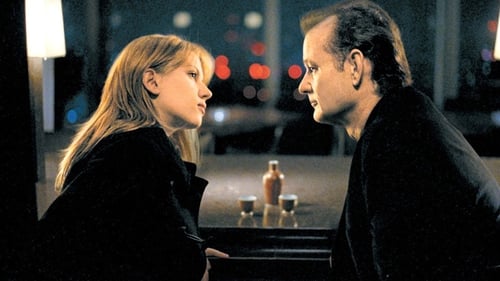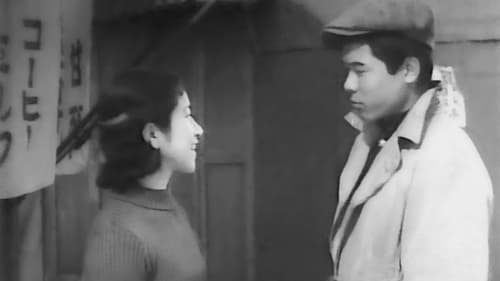
Suntory Client
Bob Harris y Charlotte son dos norteamericanos que se encuentran en Tokio. Bob es una estrella de cine de mediana edad que ha venido a rodar un anuncio. Charlotte es una mujer joven que acompaña a todas partes a su marido, un fanático del trabajo. Incapaces de dormir, los caminos de Bob y Charlotte se cruzan por casualidad y no tardará en nacer entre ellos una sorprendente amistad. Se aventuran juntos en la vida nocturna de Tokio, comparten inolvidables experiencias con los habitantes de la ciudad y terminan descubriendo una nueva manera de ver la vida.

This film was made by the Japanese occupation authorities in the Philippines as a propaganda film to show the Philippine people the "benefits" of the Japanese invasion and takeover of their country.

The premature death of a young mother serves as inspiration for her husband and son.

Hotta, pilot

Aoki
What is marriage? Young couple in match-making wanted to know before they decide. They visited married couples of sisters and brothers. Love comedy in 1942.

Genban Naramoto
This epic depicts the battle between Uesugi Kenshin and Takeda Shingen. The focus of the story is the struggle by the unit leader in charge of the main supply wagons and the supply troops to transport materiel to the Uesugi army. To this are added episodes involving an itinerant woman.

真木順
This movie is presumed to be lost.

The film was produced during Second Sino-Japanese War, before the Pearl Harbor Attack in 1941. The film mainly concerns the training of newly-recruited pilots and their daily life, then their subsequent fighting experiences in China. Army supported the production, providing all the authentic airplanes, training and actual actions. They even provided the older biplanes disguised as Chinese fighter planes. Obinata plays the trainer-turned-combat-leader, who is passionate and cool at the same time. All his boys love him, of course. The film is not as intense, full of sugar-coated camaraderie, until young pilots are killed in action one by one. Last twenty minutes are fairly grim, as the message of self-sacrifice is heard loud and clear.

Kiichi's goroup leader
The Whole Family Works, Mikio Naruse's adaptation of a Sunao Tokunaga novel, feels more of a piece with the writer/director's quietly observant and psychologically charged later work. For the Naruse-familiar, it is an anomaly only in its placement within his filmography—indeed, this could be a film made by the elder, stasis-minded Naruse momentarily inhabiting, through a metaphysical twist of fate, his stylistically exuberant younger self. Set in depression-era Japan around the time of the Sino-Japanese War (which the director evokes, during a brief dream sequence, by dissolving between children's war games and actual adult warfare), The Whole Family Works gently observes a family coming apart at the seams. Ishimura (Musei Tokugawa) is the jobless father of nine children.





